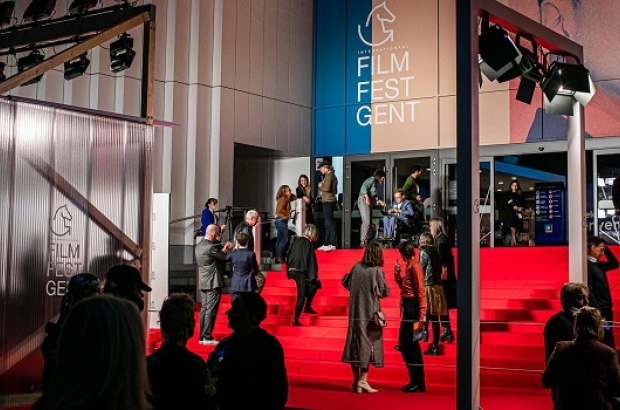- Daily & Weekly newsletters
- Buy & download The Bulletin
- Comment on our articles
Screentime: Catch up on cinema from around the world at a Belgian film festival this autumn
Belgium brims with film festivals all-year-round, but the advent of the autumn season is one of the biggest events of the year for cinephiles.
As night falls earlier, the lure of the big screen beckons. Film festivals are an opportunity to see major films ahead of their general release, and arthouse film and world cinema rarely played in local cinemas.
Another bonus is that many of the screenings have in-person Q&As with directors, actors and producers. The theatres are packed with enthusiastic crowds and there’s a genuine thrill to participating in a live event dedicated to the world of film.
Here’s a presentation of four upcoming festivals all boasting an international flavour, from dynamic Korean cinema and an immersion in francophone films, to women making their voices heard in the industry and a music-themed feast that enjoys a world-class reputation.
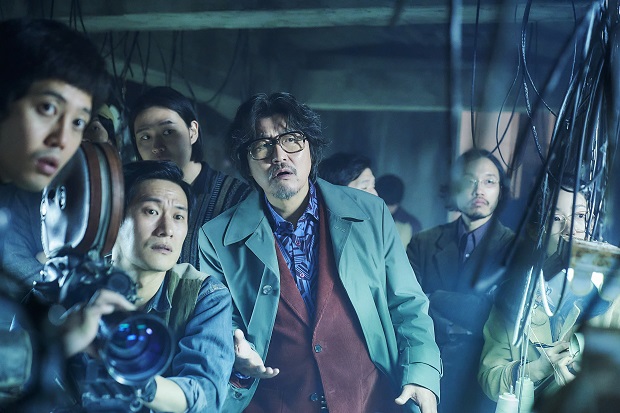
Korean Film Festival Belgium 26 September to 3 October
This annual dive into Korean cinema overflows with Belgian premieres and is an unmissable occasion to discover some of the Asian country’s best recently-released movies.
The 12th edition boasts the presence of globally-acclaimed director Kim Jee-woon. Not only does his black comedy Cobweb (Kor 2023; pictured above) open the festival, the filmmaker heads a panel and leads a masterclass at the free Forum: Originals & RE-Imagined Films staged during the festival.
A total of 14 feature films are screened during the week, including crime dramas, thrillers and action movies. Among the highlights are Citizen of a Kind (2024) by Park Young-ju, a film about a single mother that is based on a true story, and Escape (2024) by Lee Jong-pil, which recounts a North Korean sergeant’s dramatic defection to the South.
The festival is divided into three sections that include ‘Korean Film Today’ and ‘Re-Imagined Tales’, a special line-up of audiovisual content that encompasses animation and web dramas. Decades before breakout Oscar winner Parasite, South Korea has been producing some of the most interesting cinema in the world. The dynamic cinema industry is just one element of the Korean wave cultural revolution, otherwise known as Hallyu, and has won accolades for its dark films spliced with biting humour and a social conscience.
Organised by the Korean Cultural Center Brussels, the festival offers one of the most accessible and entertaining way of exploring Korean society. “Films serve as the most efficient medium for introducing and embracing a culture. Through meticulously detailed imagery, the harmonious blend of a country’s language and music, and, most importantly, narratives that mirror the cultural roots and contemporary realities, we immerse ourselves in new cultural experiences within the confines of a darkened theatre for two hours,” it says.
Brussels: Palace and Cinéma Galeries; Cinémathèque de Luxembourg
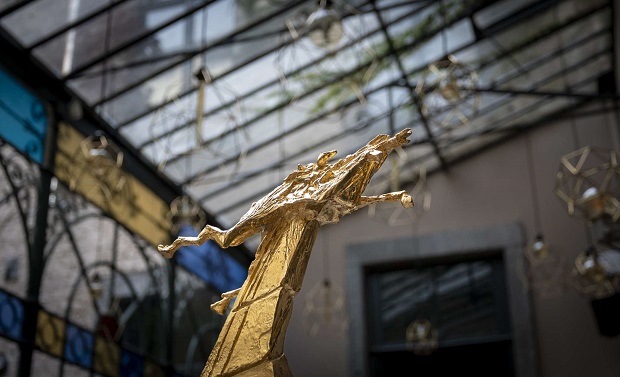
International Francophone Film Festival Namur (FIFF) 27 September to 4 October
The Walloon capital hosts the leading film festival in the region: an annual gathering of French-speaking cinema that is accompanied by a dusting of film stars. While showcasing home-grown francophone movies, the focus as ever is on multicultural filmmaking. This is a dive into cinema from around the world, with screenings of films from Africa, Asia and the Maghreb, as well as countries as diverse as Canada and Romania.
For its 39th edition, the FIFF offers its habitual rollcall of competitions with a clutch of Bayard awards (pictured above) on offer, plus short films, special screenings, cinematic events and entertainment. The programme is particularly focused on youth.
“In the period in which we live of increasing egocentrism, we try to select films that address all youngsters, tackling issues such as fraternity, solidarity, care for the environment, concerns about the future,” underlines director Nicole Gillet.
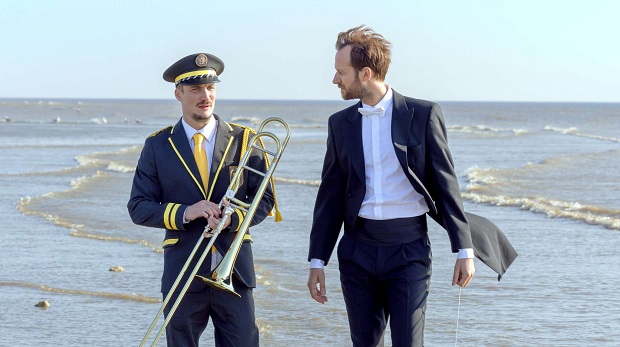
The festival opens and closes with two premieres from France: En fanfare by Emmanuel Courcol and, after the traditional award ceremony, the screening of Quand vient l’automne by François Ozon.
Meanwhile, local offerings include Belgium’s Aimer perdre by Lenny and Harpo Guit and seven Belgian co-productions. A partnership with Ostend Filmfestival sees the screening of a series of Flemish films, including the documentary Arno: Rock ’n’ roll Godverdomme by Kristof Michiels.
Among the stars descending on Namur are Romain Duris, Charlotte Le Bon, Zabou Breitman, Louis Garrel and Michel Hazanavicius. The latter director presents his new animation La plus précieuses des marchandises, while another highly-anticipated film in the genre is Claude Barras’ Sauvages.
But beyond competitions, the FIFF is a big party, aimed at "sharing cinema" and its full range of emotions. After its absence last year, the much-loved big top returns to Place d'Armes. It serves as the festival hub, home to the educational project FIFF campus, professional events, and of course, a lively line-up of DJ sets every evening. For the first time, food trucks will also set up in the square to ensure festival-goers are well fuelled.
Tickets: Purchase online or at the Bourse or Caméo Cinéma. For online reservations, the festival partner with SNCB to offer a 50% reduction on Discovery Tickets.
Namur: Caméo Cinéma, Le Delta cultural centre, Bourse stock exchange
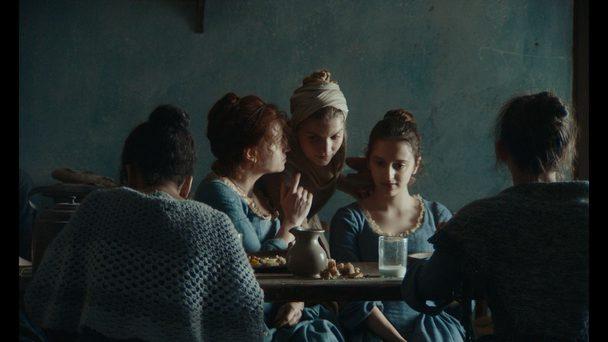
Brussels International Women’s Film Festival (Elles Tournent) 1 to 6 October
The Brussels International Women’s Film Festival (BIWFF), formerly known as Elles Tournent, is an annual celebration of films directed by women.
Anchored in Belgium’s feminist movement, the festival was born out of the perceived need to provide a platform for women’s voices. From the beginning, Elles Tournent have screened films from around the world that would not otherwise be seen.
A largely volunteer team viewed over three thousand submissions before selecting 13 features, including five documentaries and eight fictions, plus a series of shorts.
The latter incorporates an ‘Iran Session’ composed of 10 films, while some 20 international shorts are screened in sessions divided into three themes: ‘Long live feminism’, ‘Above all, live’ and ‘A world for all’ that take spectators on a colourful journey around countries such as Brazil, Egypt, Morocco, Mexico, Turkey, Italy, Nepal, Colombia, and Croatia.
Meanwhile, the ‘Graines de Cinéastes’ section showcases aspiring female filmmakers, with an evening dedicated to first and second films by young Belgian female directors.
One such home-grown talent is Fien Troch, who has won several awards and nominations for her titles, including the 2016 film Home. As patron of the BIWFF this year, she shares her valuable experience in a masterclass.
Kicking off the festival on 1 October is the Italian film Gloria! by Margherita Vicario (pictured above), while Turkish film The Last Birds of Passage by Iffet Eren Danisman Boz brings the BIWFF to a close on 6 October. Both are screened at the splendid Cinema Palace.
The upcoming BIWFF programme is intended to be “fun, moving, inspiring, empowering,” says Anny Tubbs, a Brussels-based documentary filmmaker who is part of the festival’s volunteer team.
“In Europe only 25% of feature films are directed by women. Elsewhere, women often face many obstacles to making their film,” she reiterates, adding that “their stories need to be told for a better understanding of the world we live in”.
Brussels: Aventure, Cinematek, Cinema Galeries, Palace Cinema
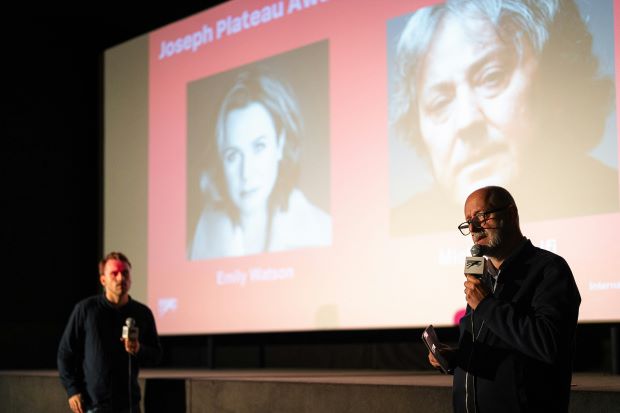
Film Fest Gent 9 to 20 October
Belgium’s largest film festival is a showcase of international cinema with a spotlight on film music. The Ghent bonanza stages concerts and other musical events, while also hosting the World Soundtrack Awards.
A total of 95 feature films and 29 shorts are all lined up for the 51st edition. They ensure that the festival’s red carpet will see non-stop action as cast and crew descend on the city to present their latest productions.
Officially kicking off the festivities is Small Things Like These by Belgian director Tim Mielants. His third feature is a poignant drama starring Oscar winner Cillian Murphy and recounts the story of a coal merchant in 1980s Ireland who discovers the local convent’s shocking secret. The beautifully-shot Irish-Belgian production opened the Berlinale earlier this year and has already received rave reviews and a Silver Bear for Emily Watson as Best Supporting Actress.
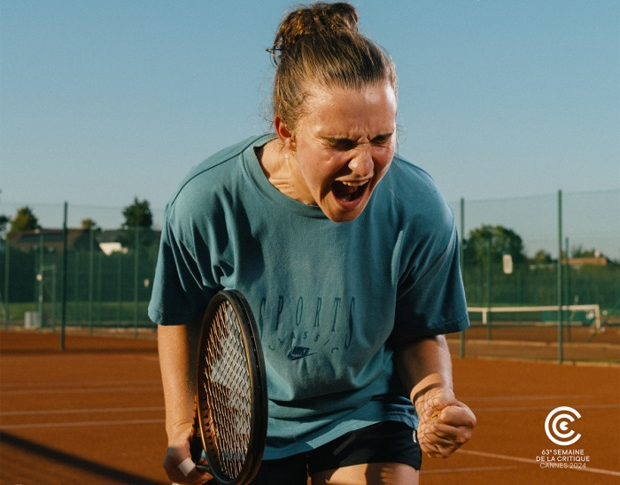
The rest of the programme is equally expansive and adventurous. Leonardo van Dijl's debut Julie Keeps Quiet (pictured above) is a gripping drama about a promising young tennis player who finds herself at the centre of a tennis academy scandal. Other highlights and festival award-winners include Sean Baker’s Anora, Pedro Almodovar’s The Room Next Door and Maura Delpero’s Vermiglio.
To help audiences navigate the extensive selection, sections are tagged with labels according to their theme and subject matter, such as Explore Zone, On the Edge, LGBTQIA+, Masters, New Voices, Fact vs. Fiction.
At the heart of the festival is the international competition “The impact of sound and music on film”. Robin Vanbesien’s documentary Hold on to her features testimonies by undocumented people about two-year-old Mawda Shawri who was killed during a police chase in Belgium in 2018. It echoes one of the central themes of the festival which is farewell and remembrance. This strikes a more poetic and positive chord in Super Happy Forever by Kohei Igarashi with the French-Japanese drama exploring grief via past and present memories.
As ever, the programme includes a short film weekend with international and student competitions. A new element this year is the 2x25 project, in which 25 composers were asked to compose a short piece of music, which then inspired 25 filmmakers to make exceptional short films.
Tickets: Purchase online or at Tickets Gent, Sint-Baafsplein 17.
Kinepolis Ghent, Muziekcentrum De Bijloke, Sphinx Cinema, Studio Skoop and other locations in the city
Photo: (main image) Filmfest Gent ©Ghent Tourism












